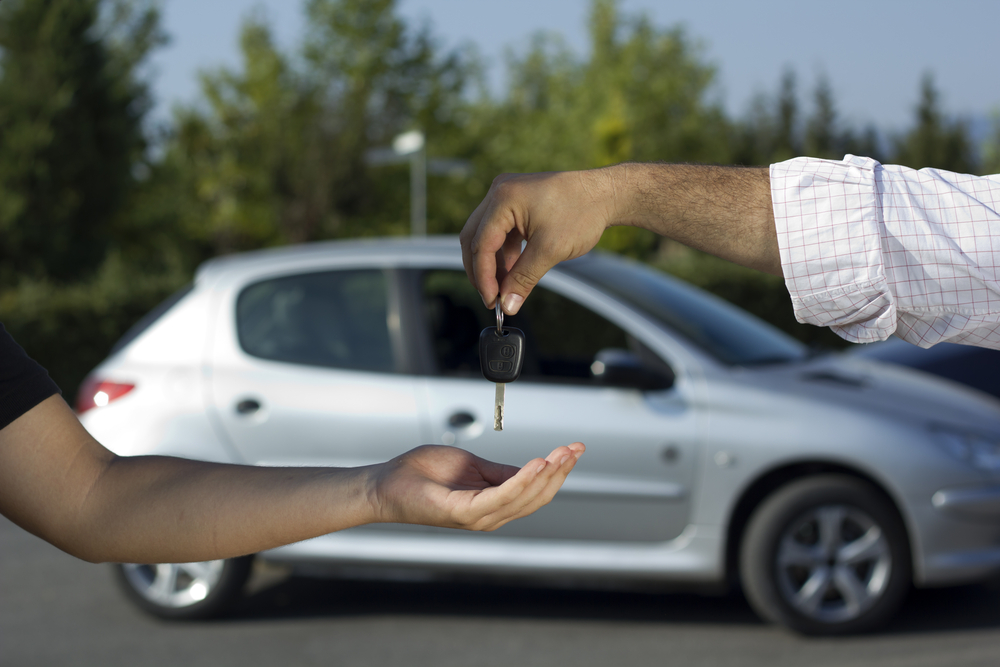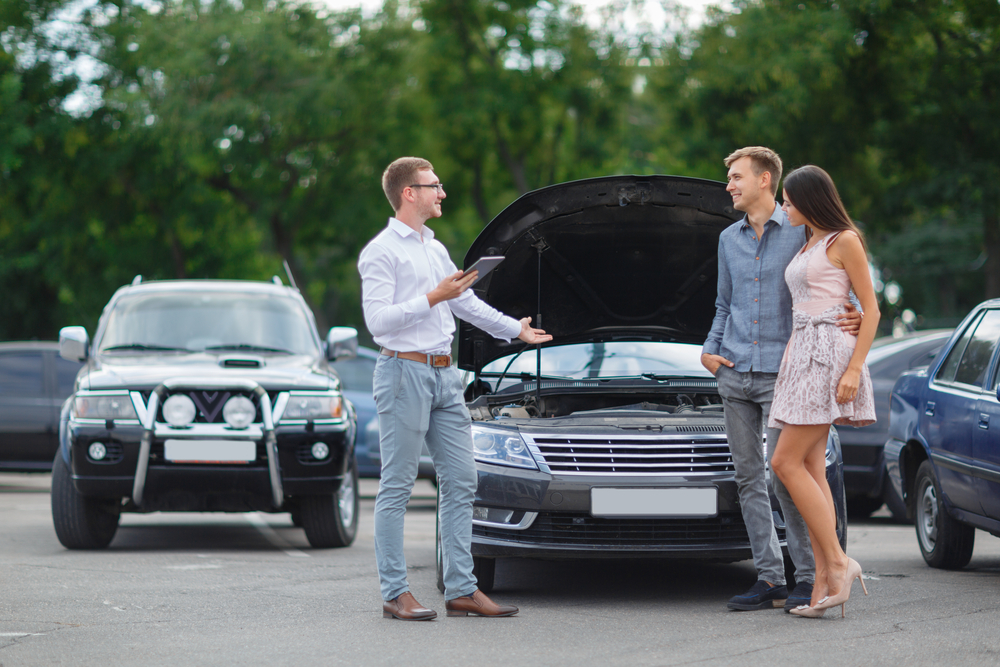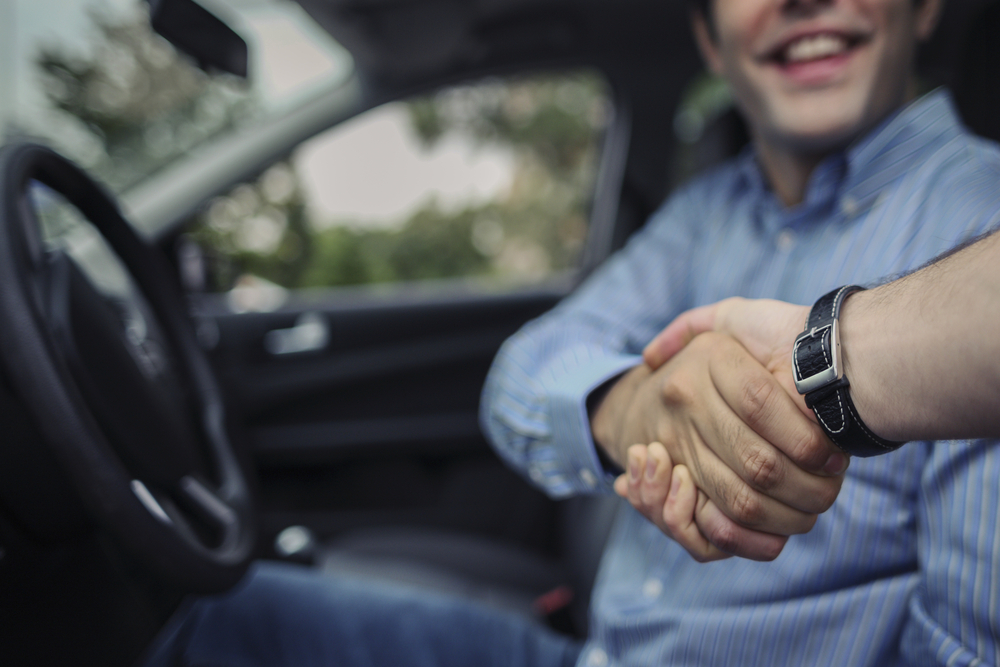
Whenever you decide that it is time to purchase another vehicle, you’ll need to choose between buying a brand new car or a used one. While a new car might seem exciting, often times a used car offers far better value. If you do opt to look for a used car, there are several checklist items you’ll want to examine for to make sure you’re getting a reliable vehicle. In the rest of this article, we’ll cover some of the most important things to look for when purchasing a used car!
Buying a Used Car
There are certainly things less exciting than buying a brand new car. You’re the first and original owner, and it feels, looks, and smells simply incredible. New cars are definitely exciting, but they have a major flaw - their price. Brand new cars often cost tens-of-thousands of dollars, a sum which most people don’t conveniently have lying around in their bank account.
One thing you should know about a new car is that it instantly loses a substantial amount of value the second you drive it off the car lot. This action essentially makes the vehicle used, even if you’ve only owned and driven it for just a few minutes. Used vehicles of the same make, model, and year are always cheaper than a newer version.
Even though used cars are less expensive to buy, that doesn’t necessarily mean you’re buying an inferior vehicle. A used car can quite literally describe any condition of vehicle that has had at least one prior owner. This can mean a vehicle that was brand new last year, or one that was made 20 years ago.
Used Car Differences
Because of this, there is bound to be a lot of variation in the used car market. Some used cars will barely run and are in need or major servicing, while some others could probably run for years without any significant issues. What this ultimately means is that you’ll need to examine the condition of any used car that you want to buy.
What should I look for when buying a used car? There are multiple crucial things that actually factor into buying a used car. The condition and value of the vehicle itself are definitely most important, but where you buy it from also matters. If you’re not familiar with cars, there are some specific makes and models that are notorious for having issues. We’ll cover those cars in the tips & advice section below.
Where to Buy From
The place (or person) you decide to purchase a used car from is quite important. Purchasing a vehicle is always a large transaction, so you’ll want to make sure you’re buying from a reputable and trustworthy seller. For used cars, the two main sources of sellers are dealerships (either bigger brand names or dedicated used car dealerships) and private sellers.
Car dealerships are typically a safer way to buy a used car because the establishment has a reputation to uphold. This makes them more likely to conduct business in good faith, which means fully disclosing all relevant details of a car you’re looking at.
Some used car dealerships are less interested in this, and may try to deceive you. If you look at their business reviews online beforehand, you’ll have a much better idea whether the dealership you’re looking at is honest. Dealerships are a reliable and structured way to buy a used car, but this typically comes with a higher cost.
Private Sellers
What do I need to know when buying a used car from a private seller? Buying a used vehicle from a private seller is a different story altogether. You’re losing the security and structure of buying from a business, meaning private sellers have far less accountability. However, only a small amount of private sellers will actually try to scam you.
Most private sellers are actually fairly reasonable and are often just looking to sell an unused vehicle for extra cash. While you don’t have the structure of a dealership, you do have much more flexibility for negotiation. A private seller isn’t trying to meet margins on a sale. You also won’t need to pay any special administrative fees. This means that you’ll often pay less for a used car from a private seller.
No matter where you decide to purchase from, you’ll want to make sure to fully inspect the vehicle beforehand. If you’re able to take it for a test drive, this is the best way to make sure everything is functional in a driving setting. You’ll need to take in all this information to make an evaluation as to whether or not the car is worth purchasing.
Evaluating a Used Car
How do you evaluate a used car? There are many things you’ll need to consider when evaluating a used car. The three best ways to evaluate a car are by how it looks, how it runs, and the history it has. Each way has several different things that you’ll want to look for.
When you actually look at a car, you can see if it has any physical damage or defects. This can tell you if it has been in an accident or has been handled carelessly. You can also identify how clean the vehicle is. Generally speaking, a dirtier vehicle often indicates a less responsible owner. This means that maintenance might not have been kept up with, which means you might want to check out some service records.
Test driving a car is probably most important, because that is when you’ll actually see what the car can do. How does it feel when it drives? Is it smooth and quiet, or are there odd rattles or loud noises coming from the engine? Do the gears shift smoothly and are there any issues with acceleration? Everything you’d need to do on a daily basis should be tested to make sure everything is good to go.
A used car’s history is also very helpful. This includes information about the specific car you’re looking at, but also about the make and model in general. If you do research about the make and model, you’ll learn what fair value for the vehicle.
You can also learn what specific issues that vehicle model may have, which can alert you to keep an eye out for it when you test drive. Having information about the actual car you’re looking at will tell you if it has been in any accidents and if it was well-maintained.
Ultimate Used Car Checklist
Considering the three concepts of looking, testing, and researching history, there are many checklist items that you’ll want to remember when considering purchasing a used car. While these aren’t all required, taking the time and effort to examine each item on this checklist will give you the best shot at ensuring that you buy a good car.
Below you'll find an ultimate used car checklist of things you’ll want to do and features to keep an eye out for. In Part 2 of the Used Car Checklist, we'll go in depth about vehicle pre-purchase inspections and important things you'll want to remember for that.
History
- Vehicle History Report
- Service Records
- Market Rate
- Common Problems with Model
- Mileage?
Look
- Body Damage?
- Paint Job
- Tire Quality
- Interior Smell
- Engine Bay
- Door Trim/Seals
- Check Fluids
- Emergency Equipment
- Owner’s Manual?
Test
- Accelerator
- Brakes
- Parking Brake
- Lights (front, back, and interior)
- Horn
- Turn Indicators/Emergency Lights
- Steering
- Dashboard Icons
- Air Conditioning/Heater
- All Doors
- Power Windows
Tips & Advice
When it comes to purchasing a used car, you should trust your instincts. If a deal seems like it is too good to be true, then it probably is. Most people don’t sell used cars for next-to-nothing unless there is something catastrophically wrong with the vehicle. Even though it may take you several months to find a good used car, you’ll absolutely want to be patient with the process.
If you rush into buying a used car without fully evaluating it, you can potentially buy a vehicle that will cost you a lot of time and money down the road. This is something you can avoid with some time and effort, so don’t buy the first car you see that looks nice!
There are so many different cars on the road today, so you have many different options to choose from. It is difficult to say what the best used car, is but there are certainly some that make for very bad choices.
What used cars to avoid? Generally speaking, you should steer clear of any cars with major issues or dishonest sellers. These two problems often go hand-in-hand, but this is why you’ll want to take your time with your evaluation. If you’re not comfortable doing everything yourself, you can always ask to take the vehicle to a reliable mechanic or service shop to get a second opinion. If you’re buying a used vehicle, the last thing you want to do is pay more money to get the car in good working shape after just having purchased it.
Learn More About Vehicle Pre-Purchase Inspections!
By now you should have a better idea of what you need to be aware of when purchasing a used vehicle. The condition and value of whatever car you’re looking at are very important to determining whether or not you should make a deal. You’ll also need to factor in whoever you decide to purchase the car from, and whether that source is trustworthy or not.
The best way to ensure that you’re getting a good deal is to conduct a through car examination. You’ll want to look at all different aspects of the vehicle, including how it looks, how it runs, and the history that goes along with it. Picking up a used car checklist will help you to remember all the things that you should check for. With so many things to look for and test, it can be easy to forget everything! With a used car checklist, you’ll have a reliable resource to consult to help you make a better buying decision!
If you want to learn more about what you'll want to identify in an inspection, check out the Used Car Checklist, Part 2: Vehicle Pre-Purchase Inspections!



